Learning Disability Football
On Wednesday 15th June a group of students from Learning Support attended a football match against Heathlands School in St.Albans. The match is part of a league for schools with...
Filter by Category
Filter by Author


























































































































































































On Wednesday 15th June a group of students from Learning Support attended a football match against Heathlands School in St.Albans. The match is part of a league for schools with...
Posted by Emma Rollings
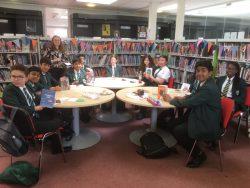
The Yoto Carnegie Medal is awarded annually by children’s librarians for an outstanding book written in English for children and young people. Every spring, reading groups in...
Posted by Teresa Turton

Year 9 went to the Imperial war Museum on the 6th of May. We divided into two groups and each took turns going to the World War Two expedition and the Holocaust expedition. In the...
Posted by Adam Lyley
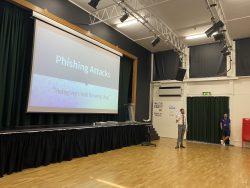
Last Friday Mr Booth Head of Willow House and Senior IT Technician led our important Friday Faculty Focus which centred around Cyber Security. I am sure all of us have experienced...
Posted by Jeremy Turner

Posted by Danielle Bowe
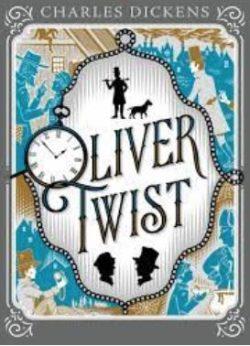
Oliver Twist, or The Parish Boy’s Progress was Charles Dickens’ second novel, following The Pickwick Papers, and was published as a serial in the magazine...
Posted by Natalie Stanton
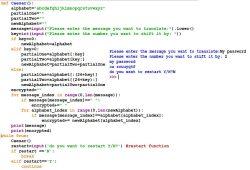
It is pleasing to have students who are willing to do more than just the standard set tasks that are given in lessons. There are two Yr11 students Joshua Riley and Jack Thorn, who...
Posted by Siew Young
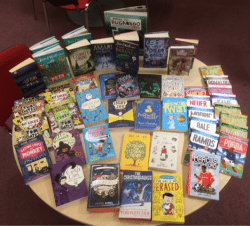
Back in March, for the World Book Day competition, some of our amazing students baked book-themed cakes and held a bake-sale so others could enjoy their creations. The proceeds of...
Posted by Teresa Turton

In line with the latest guidance and in common with the vast majority of schools across the country, we are strengthening our Behaviour Policy to further minimise the risks...
Posted by Helen Blowers
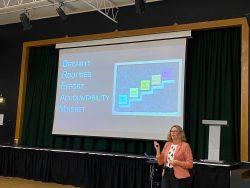
Our students this week had the privilege of listening to a very motivational assembly delivered by one of our top languages teachers and More Able Coordinator Ms Hargreaves on the...
Posted by Jeremy Turner
Oliver Twist, or The Parish Boy’s Progress was Charles Dickens’ second novel, following The Pickwick Papers, and was published as a serial in the magazine Bentley’s Miscellany between 1837 and 1839. It has been adapted into award-winning films, television and musicals. The orphaned Oliver is brought up in a harsh workhouse, before meeting the Artful Dodger and being taken in and exploited by the criminal Fagin. Oliver finds himself on the dark streets of Victorian-era London and part of a rough gang of urchins. Oliver is treated with cruelty for most of his life but eventually finds salvation and the shocking discovery of his true identity. For anyone wishing to read a Victorian text, Oliver Twist is an essential title.
Interesting Fact: Oliver Twist was written as a response to an inhumane law called ‘Poor Law’ which was passed in Parliament in 1834. The law broke up families, closed parish poorhouses, and required that the poor live in workhouses and work at forced labour. These workhouses were seen more like prisons so Oliver Twist helped expose their evils to an unknowing public.
Suggestion: This is another excellent read for Year 10 Bushey Meads Students. It will help with wider reading of Charles Dickens and a deeper understanding of class and social division.
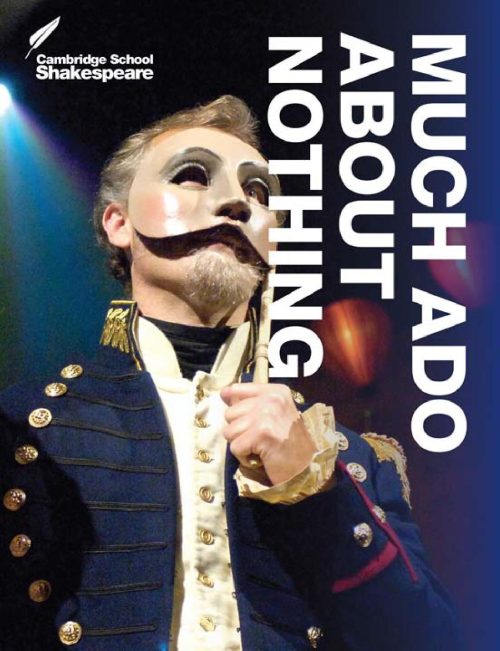
Year 7 students are currently studying Shakespeare’s comedy, Much Ado About Nothing. Taking place in Messina, Italy, our year 7 scholars have discovered a diverse range of...

With the increasing use of Chromebooks and laptops, we are lucky to have access to a wide collection of ebooks and audio books, including study guides and set texts, in addition...